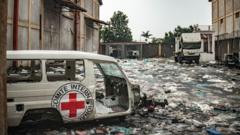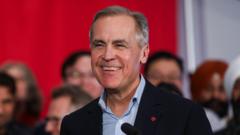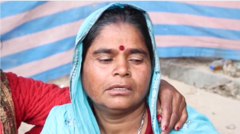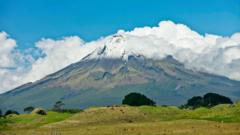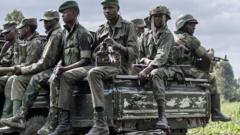In a significant political shift, university students in Bangladesh are stepping forward to redefine the nation's democratic landscape after a popular uprising against the authoritarian rule of Sheikh Hasina. Combining youthful zeal with the expertise of seasoned professionals, this emerging leadership faces a complex set of challenges, from political unrest to social justice aspirations.
Bangladesh’s Youth Lead Charge to Restore Democracy After Ousting a Government

Bangladesh’s Youth Lead Charge to Restore Democracy After Ousting a Government
A coalition of students and technocrats in Bangladesh is striving to build a democratic future following the recent ousting of Sheikh Hasina.
In recent gatherings within a newly established office in Dhaka, a diverse coalition of university students is working tirelessly to navigate a fresh political landscape in Bangladesh. Only months prior, these students were part of a mass movement that successfully ousted Sheikh Hasina, whose lengthy tenure faced severe criticism for authoritarian measures, corruption, and brutality.
Now, fueled by a heightened sense of purpose, they are determined to transform the socio-political fabric of their nation. Their vision includes establishing a democracy characterized by fair elections and a commitment to social justice and the prevention of future autocratic leadership. “Our political power is in a very fluid form right now,” explained Arif Sohel, a 26-year-old student organizer, who aims to unify students and attract political parties with the rallying cry: “We want a country that is stable and will progress.”
However, leading this charge comes with monumental challenges for Bangladesh, a country with a tumultuous political legacy that began with bloodshed over five decades ago. The newly formed interim government, composed of both seasoned technocrats and enthusiastic students, grapples with immense pressures, including demands for expedited elections by opposition parties that had previously been marginalized. The population also continues to endure hardships linked to soaring inflation, affecting vital commodities like oil and rice, while daily protests disrupt life in the capital.
Additionally, the nation faces rising tensions with India, particularly concerning reports of violence against Hindu minorities by Muslim groups. These complex dynamics pose significant challenges for the hopeful leaders, as they seek both internal stability and a path towards lasting democratic reforms. As Bangladesh sits on the brink of potential transformation, the situation remains tense but charged with the hopeful energy of its young populace striving for a brighter, equitable future.

